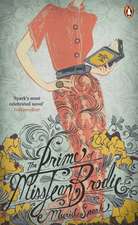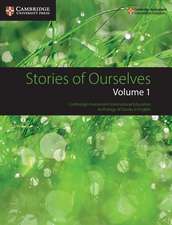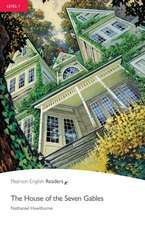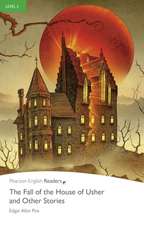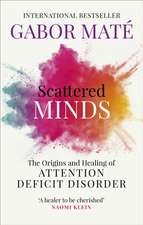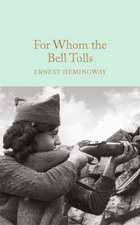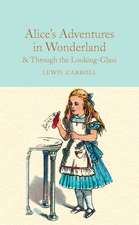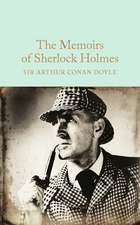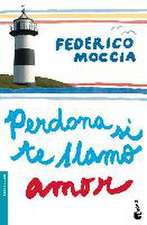Around the World in Eighty Days
Autor Jules Verne Traducere de George Makepeace Towleen Limba Engleză Paperback – 11 aug 2018
---------- Accompanied by Passepartout, Fogg departs from London by train at 8:45 P.M. on October 2; in order to win the wager, he must return to the club by this same time on December 21, 80 days later. Facts and Trivia: Movies: 1. First Film Version: Around the World in Eighty Days (1919 film), a German film starring Conrad Veidt. 2. Latest: Around the World in 80 Days (2004 film), starring Jackie Chan and Steve Coogan. Games: 1. The board game Around the World in 80 Days is derived from the novel. 2. The mobile game company Inkle published an interactive fiction adaptation of the novel, titled 80 Days, which has won numerous awards. Scroll Up and Get Your Copy Oz Books: The Wonderful Wizard of Oz https: //www.createspace.com/6426287 TIK-TOK of OZ https: //www.createspace.com/6353841 Ozma of Oz https: //www.createspace.com/6356346 Glinda of OZ https: //www.createspace.com/6461890 The Scarecrow of OZ https: //www.createspace.com/6461981 The Marvelous Land of Oz https: //www.createspace.com/6462832 Dorothy and the Wizard in Oz https: //www.createspace.com/6464450 The Road to Oz by https: //www.createspace.com/6464521 The Emerald City of Oz https: //www.createspace.com/6464602 The Patchwork Girl of Oz https: //www.createspace.com/6464682 The Lost Princess of Oz https: //www.createspace.com/6465342 The Tin Woodman of Oz https: //www.createspace.com/6466582 Rinkitink in Oz https: //www.createspace.com/6464764 The Magic of Oz https: //www.createspace.com/6466620 Grimm's Fairy Tales by Brothers Grimm https: //www.createspace.com/6440051 Sky Island by L. Frank Baum https: //www.createspace.com/6446563 The Secret Garden by Frances Hodgson Burnett https: //www.createspace.com/6455917 Robur the Conqueror by Jules Verne https: //www.createspace.com/6485150
Preț: 59.97 lei
Nou
Puncte Express: 90
Preț estimativ în valută:
11.48€ • 12.01$ • 9.55£
11.48€ • 12.01$ • 9.55£
Carte indisponibilă temporar
Doresc să fiu notificat când acest titlu va fi disponibil:
Se trimite...
Preluare comenzi: 021 569.72.76
Specificații
ISBN-13: 9781718125834
ISBN-10: 1718125836
Pagini: 184
Dimensiuni: 153 x 228 x 17 mm
Greutate: 0.28 kg
Editura: LIGHTNING SOURCE INC
ISBN-10: 1718125836
Pagini: 184
Dimensiuni: 153 x 228 x 17 mm
Greutate: 0.28 kg
Editura: LIGHTNING SOURCE INC
Notă biografică
Jules Verne (February 8, 1828- March 24, 1905) was a French writer. He was one of the first authors to write science fiction. He was born in the city of Nantes, France. His father was a lawyer, and at the beginning, Verne wanted to study law as well. When he was nineteen, he started writing long pieces of literature, but his father wanted him to earn money as a lawyer, not as a writer. In 1847, his father sent him to Paris to start studying law. In 1848, Jules Verne, on a visit home, fell in love, but the girl's parents did not want her to marry him. Verne was depressed when he heard that the girl had been married to someone else - a rich, older man. In his stories, Jules Verne often writes about women married to people they do not love. He returned to Paris to find it on the verge of revolution: the French Revolution of 1848 deposed the king, and Louis-Napoléon Bonaparte was elected as the first president of the Republic of France. Verne continued to study law until 1851, but all the time he was writing and meeting with other authors and artists. Finally, in 1852, he decided to give up being a lawyer, and become a full-time professional writer instead. His father was very unhappy with this decision, but Verne was stubborn and strong-minded, so he went ahead with his plans. Verne went to Paris to try to find success. At first, he did not find any fame. Over time, he became a fan of science, while becoming well-known for his writing. His love of science and writing led him to write stories and novels that are now called "science fiction". Many people say Jules Verne was the creator of the science fiction genre.
Descriere
Descriere de la o altă ediție sau format:
Having assured the members of London's exclusive Reform Club that he will circumnavigate the world in 80 days, Fogg - stiff, repressed, English - starts by joining forces with an irrepressible Frenchman, Passepartout, and then with a ravishing Indian beauty, Aouda. Together they slice through jungles, over snowbound passes, even across an entire isthmus - only to get back five minutes late. Fogg faces despair and suicide, but Aouda makes a new man of him, able to face even the Reform Club again. Around the World in Eighty Days (1872) contains a strong dose of post-Romantic reality plus extensive borrowing from the author's own Journey to England and Scotland - but not a shred of science fiction. Its modernism lies instead in the experimental literary technique, with parallel plots, a narrator constantly made to look foolish, four characters in search of their own unconscious, and a unique twisting of space and time. Verne's classic, a bestseller for over a century, has never appeared in a critical edition before. William Butcher's stylish new translation moves as fast and as brilliantly as Fogg's own journey. ABOUT THE SERIES: For over 100 years Oxford World's Classics has made available the widest range of literature from around the globe. Each affordable volume reflects Oxford's commitment to scholarship, providing the most accurate text plus a wealth of other valuable features, including expert introductions by leading authorities, helpful notes to clarify the text, up-to-date bibliographies for further study, and much more.
Having assured the members of London's exclusive Reform Club that he will circumnavigate the world in 80 days, Fogg - stiff, repressed, English - starts by joining forces with an irrepressible Frenchman, Passepartout, and then with a ravishing Indian beauty, Aouda. Together they slice through jungles, over snowbound passes, even across an entire isthmus - only to get back five minutes late. Fogg faces despair and suicide, but Aouda makes a new man of him, able to face even the Reform Club again. Around the World in Eighty Days (1872) contains a strong dose of post-Romantic reality plus extensive borrowing from the author's own Journey to England and Scotland - but not a shred of science fiction. Its modernism lies instead in the experimental literary technique, with parallel plots, a narrator constantly made to look foolish, four characters in search of their own unconscious, and a unique twisting of space and time. Verne's classic, a bestseller for over a century, has never appeared in a critical edition before. William Butcher's stylish new translation moves as fast and as brilliantly as Fogg's own journey. ABOUT THE SERIES: For over 100 years Oxford World's Classics has made available the widest range of literature from around the globe. Each affordable volume reflects Oxford's commitment to scholarship, providing the most accurate text plus a wealth of other valuable features, including expert introductions by leading authorities, helpful notes to clarify the text, up-to-date bibliographies for further study, and much more.
Recenzii
elegant
by far the best translations/critical editions available
by far the best translations/critical editions available
Extras
Chapter I: In Which Phileas Fogg and Passepartout Accept Each Other, the One as Master, the Other as Man![]() Chapter I
Chapter I ![]() IN WHICH PHILEAS FOGG AND PASSEPARTOUT ACCEPT EACH OTHER, THE ONE AS MASTER, THE OTHER AS MAN
IN WHICH PHILEAS FOGG AND PASSEPARTOUT ACCEPT EACH OTHER, THE ONE AS MASTER, THE OTHER AS MAN
Mr. Phileas Fogg lived, in 1872, at number 7, Savile Row, Burlington Gardens, the house in which Sheridan died in 1814.1 Phileas Fogg was one of the most noticeable members of the Reform Club, though he seemed always to avoid attracting attention; an enigmatical personage, about whom little was known, except that he was a polished man of the world. People said that he resembled Byron—at least that his head was Byronic; but he was a bearded, tranquil Byron, who might live on for a thousand years without growing old.
Certainly an Englishman, it was more doubtful whether Phileas Fogg was a Londoner. He was never seen on the ’Change, nor at the Bank, nor in the counting rooms of the “City”; no ships ever came into London docks of which he was the owner; he had no public employment; he had never been entered at any of the Inns of Court, either at the Temple, or Lincoln’s Inn, or Gray’s Inn; nor had his voice ever resounded in the Court of Chancery, or in the Exchequer, or the Queen’s Bench, or the Ecclesiastical Courts. He certainly was not a manufacturer; nor was he a merchant or a gentleman farmer. His name was strange to the scientific and learned societies, and he never was known to take part in the sage deliberations of the Royal Institution or the London Institution, the Artisans’ Association, or the Institution of Arts and Sciences. He belonged, in fact, to none of the numerous societies which swarm in the English capital, from the Harmonic to that of the entomologists, founded mainly for the purpose of abolishing pernicious insects.
Phileas Fogg was a member of the Reform, and that was all.
The way in which he got admission to this exclusive club was simple enough.
He was recommended by the Barings, with whom he had an open credit. His checks were regularly paid at sight from his account current, which was always flush.
Was Phileas Fogg rich? Undoubtedly. But those who knew him best could not imagine how he had made his fortune, and Mr. Fogg was the last person to whom to apply for the information. He was not lavish, nor, on the contrary, avaricious; for, whenever he knew that money was needed for a noble, useful, or benevolent purpose, he supplied it quietly and sometimes anonymously. He was, in short, the least communicative of men. He talked very little, and seemed all the more mysterious for his taciturn manner. His daily habits were quite open to observation; but whatever he did was so exactly the same thing that he had always done before that the wits of the curious were fairly puzzled.
Had he traveled? It was likely, for no one seemed to know the world more familiarly; there was no spot so secluded that he did not appear to have an intimate acquaintance with it. He often corrected, with a few clear words, the thousand conjectures advanced by members of the club as to lost and unheard-of travelers, pointing out the true probabilities, and seeming as if gifted with a sort of second sight, so often did events justify his predictions. He must have traveled everywhere, at least in the spirit.
It was at least certain that Phileas Fogg had not absented himself from London for many years. Those who were honored by a better acquaintance with him than the rest declared that nobody could pretend to have ever seen him anywhere else. His sole pastimes were reading the papers and playing whist. He often won at this game, which, as a silent one, harmonized with his nature; but his winnings never went into his purse, being reserved as a fund for his charities. Mr. Fogg played not to win but for the sake of playing. The game was in his eyes a contest, a struggle with a difficulty, yet a motionless, unwearying struggle, congenial to his tastes.
Phileas Fogg was not known to have either wife or children, which may happen to the most honest people; nor did he have relatives or near friends, which is certainly more unusual. He lived alone in his house in Savile Row, whither none penetrated. A single domestic sufficed to serve him. He breakfasted and dined at the club, at hours mathematically fixed, in the same room, at the same table, never taking his meals with other members, much less bringing a guest with him; and went home at exactly midnight, only to retire at once to bed. He never used the cozy chambers which the Reform provides for its favored members. He passed ten hours out of the twenty-four in Savile Row, either in sleeping or making his toilet. When he chose to take a walk, it was with a regular step in the entrance hall with its mosaic flooring, or in the circular gallery with its dome supported by twenty red porphyry Ionic columns, and illumined by blue-painted windows. When he breakfasted or dined, all the resources of the club—its kitchens and pantries, its buttery and dairy—aided to crowd his table with their most succulent stores; he was served by the gravest waiters, in dress coats, and shoes with swanskin soles, who proffered the viands in special porcelain, and on the finest linen; club decanters, of a lost mold, contained his sherry, his port, and his cinnamon-spiced claret; while his beverages were refreshingly cooled with ice, brought at great cost from the American lakes.
If to live in this style is to be eccentric, it must be confessed that there is something good in eccentricity.
The mansion in Savile Row, though not sumptuous, was exceedingly comfortable. The habits of its occupant were such as to demand but little from the sole domestic, but Phileas Fogg required him to be almost superhumanly prompt and regular. On this very 2nd of October he had dismissed James Forster, because that luckless youth had brought him shaving water at 84° Fahrenheit instead of 86°; and Mr. Fogg was awaiting Forster’s successor, who was due at the house between eleven and half past.
Phileas Fogg was seated squarely in his armchair, his feet close together like those of a grenadier on parade, his hands resting on his knees, his body straight, his head erect; he was steadily watching a complicated clock which indicated the hours, the minutes, the seconds, the days, the months, and the years. At exactly half past eleven Mr. Fogg would, according to his daily habit, quit Savile Row, and repair to the Reform.
A rap at this moment sounded on the door of the cozy apartment where Phileas Fogg was seated, and James Forster, the dismissed servant, appeared.
“The new servant,” said he.
A young man of thirty advanced and bowed.
“You are a Frenchman, I believe,” asked Phileas Fogg, “and your name is John?”
“Jean, if monsieur pleases,” replied the newcomer, “Jean Passepartout, a surname which has clung to me because I have a natural aptness for going out of one business into another. I believe I’m honest, monsieur, but, to be outspoken, I’ve had several trades. I’ve been an itinerant singer, and a circus rider, when I used to vault like Léotard and dance on a rope like Blondin. Then I got to be a professor of gymnastics, so as to make better use of my talents; and then I was a sergeant fireman at Paris, and assisted at many a big fire. But I quitted France five years ago, and, wishing to taste the sweets of domestic life, took service as a valet here in England. Finding myself out of place, and hearing that Monsieur Phileas Fogg was the most exact and settled gentleman in the United Kingdom, I have come to monsieur in the hope of living with him a tranquil life, and forgetting even the name of Passepartout.”
“Passepartout suits me,” responded Mr. Fogg. “You are well recommended to me; I hear a good report of you. You know my conditions?”
“Yes, monsieur.”
“Good! What time is it?”
“Twenty-two minutes after eleven,” returned Passepartout, drawing an enormous silver watch from the depths of his pocket.
“You are too slow,” said Mr. Fogg.
“Pardon me, monsieur; it is impossible—”
“You are four minutes too slow. No matter; it’s enough to mention the error. Now from this moment, twenty-nine minutes after eleven a.m., this Wednesday, second October, you are in my service.”
Phileas Fogg got up, took his hat in his left hand, put it on his head with an automatic motion, and went off without a word.
Passepartout heard the street door shut once; it was his new master going out. He heard it shut again; it was his predecessor, James Forster, departing in his turn. Passepartout remained alone in the house in Savile Row.
Mr. Phileas Fogg lived, in 1872, at number 7, Savile Row, Burlington Gardens, the house in which Sheridan died in 1814.1 Phileas Fogg was one of the most noticeable members of the Reform Club, though he seemed always to avoid attracting attention; an enigmatical personage, about whom little was known, except that he was a polished man of the world. People said that he resembled Byron—at least that his head was Byronic; but he was a bearded, tranquil Byron, who might live on for a thousand years without growing old.
Certainly an Englishman, it was more doubtful whether Phileas Fogg was a Londoner. He was never seen on the ’Change, nor at the Bank, nor in the counting rooms of the “City”; no ships ever came into London docks of which he was the owner; he had no public employment; he had never been entered at any of the Inns of Court, either at the Temple, or Lincoln’s Inn, or Gray’s Inn; nor had his voice ever resounded in the Court of Chancery, or in the Exchequer, or the Queen’s Bench, or the Ecclesiastical Courts. He certainly was not a manufacturer; nor was he a merchant or a gentleman farmer. His name was strange to the scientific and learned societies, and he never was known to take part in the sage deliberations of the Royal Institution or the London Institution, the Artisans’ Association, or the Institution of Arts and Sciences. He belonged, in fact, to none of the numerous societies which swarm in the English capital, from the Harmonic to that of the entomologists, founded mainly for the purpose of abolishing pernicious insects.
Phileas Fogg was a member of the Reform, and that was all.
The way in which he got admission to this exclusive club was simple enough.
He was recommended by the Barings, with whom he had an open credit. His checks were regularly paid at sight from his account current, which was always flush.
Was Phileas Fogg rich? Undoubtedly. But those who knew him best could not imagine how he had made his fortune, and Mr. Fogg was the last person to whom to apply for the information. He was not lavish, nor, on the contrary, avaricious; for, whenever he knew that money was needed for a noble, useful, or benevolent purpose, he supplied it quietly and sometimes anonymously. He was, in short, the least communicative of men. He talked very little, and seemed all the more mysterious for his taciturn manner. His daily habits were quite open to observation; but whatever he did was so exactly the same thing that he had always done before that the wits of the curious were fairly puzzled.
Had he traveled? It was likely, for no one seemed to know the world more familiarly; there was no spot so secluded that he did not appear to have an intimate acquaintance with it. He often corrected, with a few clear words, the thousand conjectures advanced by members of the club as to lost and unheard-of travelers, pointing out the true probabilities, and seeming as if gifted with a sort of second sight, so often did events justify his predictions. He must have traveled everywhere, at least in the spirit.
It was at least certain that Phileas Fogg had not absented himself from London for many years. Those who were honored by a better acquaintance with him than the rest declared that nobody could pretend to have ever seen him anywhere else. His sole pastimes were reading the papers and playing whist. He often won at this game, which, as a silent one, harmonized with his nature; but his winnings never went into his purse, being reserved as a fund for his charities. Mr. Fogg played not to win but for the sake of playing. The game was in his eyes a contest, a struggle with a difficulty, yet a motionless, unwearying struggle, congenial to his tastes.
Phileas Fogg was not known to have either wife or children, which may happen to the most honest people; nor did he have relatives or near friends, which is certainly more unusual. He lived alone in his house in Savile Row, whither none penetrated. A single domestic sufficed to serve him. He breakfasted and dined at the club, at hours mathematically fixed, in the same room, at the same table, never taking his meals with other members, much less bringing a guest with him; and went home at exactly midnight, only to retire at once to bed. He never used the cozy chambers which the Reform provides for its favored members. He passed ten hours out of the twenty-four in Savile Row, either in sleeping or making his toilet. When he chose to take a walk, it was with a regular step in the entrance hall with its mosaic flooring, or in the circular gallery with its dome supported by twenty red porphyry Ionic columns, and illumined by blue-painted windows. When he breakfasted or dined, all the resources of the club—its kitchens and pantries, its buttery and dairy—aided to crowd his table with their most succulent stores; he was served by the gravest waiters, in dress coats, and shoes with swanskin soles, who proffered the viands in special porcelain, and on the finest linen; club decanters, of a lost mold, contained his sherry, his port, and his cinnamon-spiced claret; while his beverages were refreshingly cooled with ice, brought at great cost from the American lakes.
If to live in this style is to be eccentric, it must be confessed that there is something good in eccentricity.
The mansion in Savile Row, though not sumptuous, was exceedingly comfortable. The habits of its occupant were such as to demand but little from the sole domestic, but Phileas Fogg required him to be almost superhumanly prompt and regular. On this very 2nd of October he had dismissed James Forster, because that luckless youth had brought him shaving water at 84° Fahrenheit instead of 86°; and Mr. Fogg was awaiting Forster’s successor, who was due at the house between eleven and half past.
Phileas Fogg was seated squarely in his armchair, his feet close together like those of a grenadier on parade, his hands resting on his knees, his body straight, his head erect; he was steadily watching a complicated clock which indicated the hours, the minutes, the seconds, the days, the months, and the years. At exactly half past eleven Mr. Fogg would, according to his daily habit, quit Savile Row, and repair to the Reform.
A rap at this moment sounded on the door of the cozy apartment where Phileas Fogg was seated, and James Forster, the dismissed servant, appeared.
“The new servant,” said he.
A young man of thirty advanced and bowed.
“You are a Frenchman, I believe,” asked Phileas Fogg, “and your name is John?”
“Jean, if monsieur pleases,” replied the newcomer, “Jean Passepartout, a surname which has clung to me because I have a natural aptness for going out of one business into another. I believe I’m honest, monsieur, but, to be outspoken, I’ve had several trades. I’ve been an itinerant singer, and a circus rider, when I used to vault like Léotard and dance on a rope like Blondin. Then I got to be a professor of gymnastics, so as to make better use of my talents; and then I was a sergeant fireman at Paris, and assisted at many a big fire. But I quitted France five years ago, and, wishing to taste the sweets of domestic life, took service as a valet here in England. Finding myself out of place, and hearing that Monsieur Phileas Fogg was the most exact and settled gentleman in the United Kingdom, I have come to monsieur in the hope of living with him a tranquil life, and forgetting even the name of Passepartout.”
“Passepartout suits me,” responded Mr. Fogg. “You are well recommended to me; I hear a good report of you. You know my conditions?”
“Yes, monsieur.”
“Good! What time is it?”
“Twenty-two minutes after eleven,” returned Passepartout, drawing an enormous silver watch from the depths of his pocket.
“You are too slow,” said Mr. Fogg.
“Pardon me, monsieur; it is impossible—”
“You are four minutes too slow. No matter; it’s enough to mention the error. Now from this moment, twenty-nine minutes after eleven a.m., this Wednesday, second October, you are in my service.”
Phileas Fogg got up, took his hat in his left hand, put it on his head with an automatic motion, and went off without a word.
Passepartout heard the street door shut once; it was his new master going out. He heard it shut again; it was his predecessor, James Forster, departing in his turn. Passepartout remained alone in the house in Savile Row.
- 1. The publisher has chosen to leave as they are certain errors in facts, calculations, and the passage of time in this story.
Caracteristici
Contains extra material for young readers, including a profile of the author, a section on the book, a list of characters, a glossary and a test-yourself quiz




